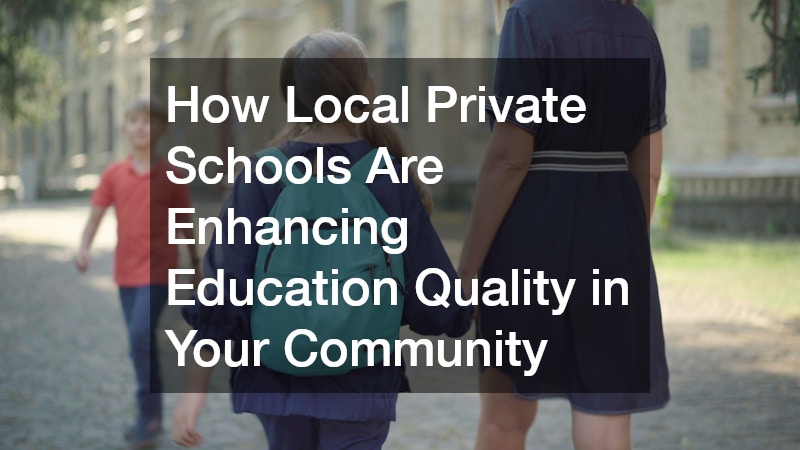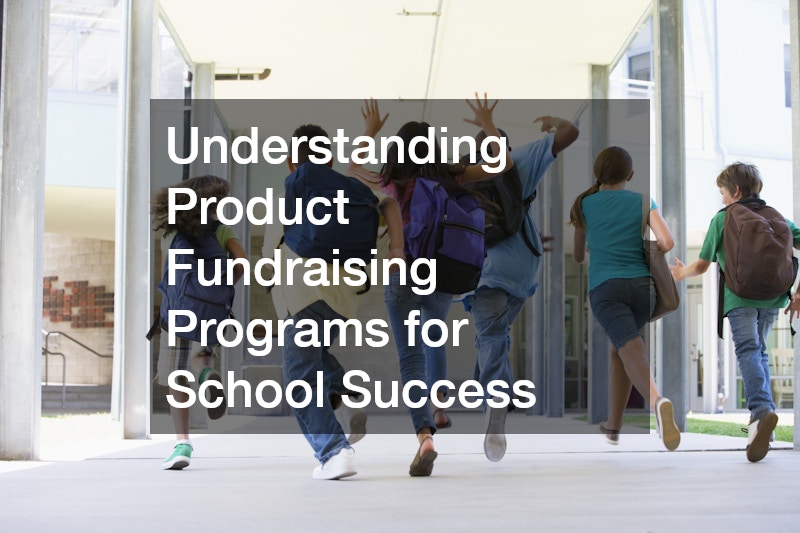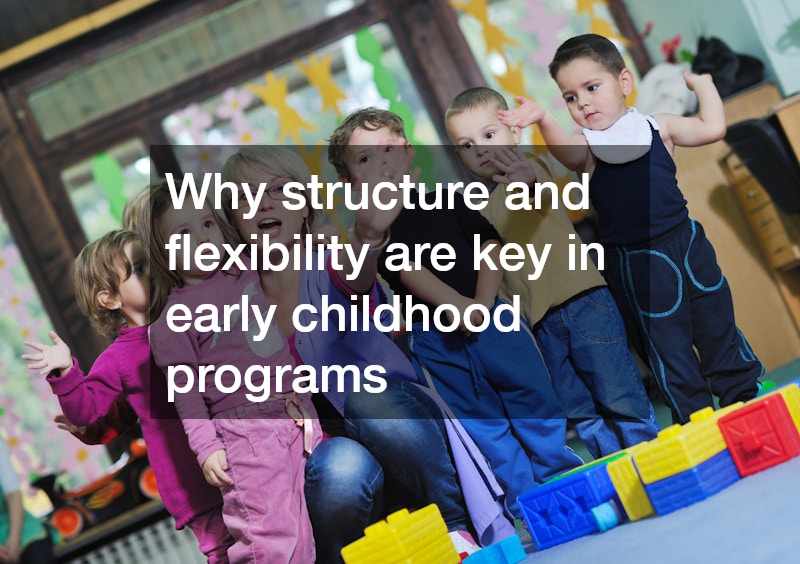Private schools are preferred by many parents– a recent survey by Education Next revealed that private schools have the highest satisfaction levels among parents of the students who go there.
A recent population surge in Southern Florida has seen fierce competition among families to secure enrollment slots. This article will delve into Miami’s top 15 private schools and how they can help parents make the right decision for their children.
Private Schools In Miami
Miami’s private school system offers a diverse and dynamic educational landscape. With a rich development history, these institutions have flourished, catering to families seeking exceptional educational experiences for their children.
Miami’s private school offerings encompass many options, including religious-affiliated schools that emphasize spiritual values, independent schools known for their innovative curricula and flexible approaches, and boarding schools that provide comprehensive residential programs.
Parents are drawn to personalized attention, smaller class sizes, and specialized programs that foster academic and personal growth. As a result, private schools in Miami continue to thrive, playing a vital role in shaping the city’s educational landscape.
List Of 15 Best Miami Private Schools
Below is a curated list of the top 15 private schools in Miami, considering their academic excellence, extracurricular activities, and facilities. Each school’s unique strengths and achievements contribute to its recognition as a leading institution in the region.
- Carrollton School of the Sacred Heart: Carrollton, a Catholic all-girls school, strongly emphasizes academic rigor, character development, and community service. With a comprehensive curriculum and state-of-the-art facilities, it provides an exceptional learning environment.
- Ransom Everglades School: Ranked among the best private schools nationally, Ransom Everglades focuses on a well-rounded education, combining academic excellence with artistic, athletic, and service-oriented opportunities.
- American Heritage Schools, Broward Campus: Known for its outstanding college preparatory programs, American Heritage offers a diverse range of extracurricular activities, including STEM initiatives, performing arts, and competitive athletics.
- American Heritage Schools, Palm Beach Campus: Similar to its Broward counterpart, the Palm Beach campus maintains high academic standards while fostering students’ talents in arts, sports, and community engagement.
- Pine Crest School, Ft. Lauderdale Campus: With a legacy spanning over 80 years, Pine Crest is renowned for its strong academic foundation, diverse clubs, and exceptional athletic programs, nurturing students to reach their full potential.
- Allison Academy: As an internationally recognized school, Allison Academy focuses on individualized learning, creating a nurturing environment that promotes intellectual, artistic, and personal growth.
- Gulliver Preparatory School: Gulliver offers a challenging college-prep curriculum combined with experiential learning, global study programs, and a wide range of extracurriculars, making it a top choice for holistic education.
- Palmer Trinity School: Emphasizing critical thinking and global citizenship, Palmer Trinity boasts an excellent faculty and an array of clubs, arts programs, and community service opportunities.
- Posnack Jewish Day School: Catering to the Jewish community, Posnack provides a vital dual-language education, emphasizing Jewish values while also excelling in academics, arts, and athletics.
- Saint Andrew’s School: Located in Boca Raton, Saint Andrew’s School is renowned for its comprehensive college-preparatory program, distinguished faculty, and extensive facilities for sports and arts.
- Miami Country Day School: With a focus on innovation and character development, Miami Country Day offers a robust STEAM curriculum, outstanding arts programs, and competitive sports teams.
- Westminster Christian School: A leader in Christian education, Westminster offers a well-rounded curriculum, a strong emphasis on service, and a variety of clubs and activities for students.
- St. Thomas Episcopal Parish School: Providing an enriching Episcopal education, St. Thomas focuses on academic excellence, spiritual growth, and a sense of responsibility towards the community.
- Belen Jesuit Preparatory School: Belen Jesuit, an all-boys Catholic school, has a legacy of academic excellence, strong leadership programs, and a commitment to service and social justice. With a rigorous curriculum and a nurturing community, Belen Jesuit prepares students for success in college and beyond.
- Riviera Schools: Committed to nurturing students’ potential, Riviera Schools offer an engaging curriculum and ample opportunities for personal growth through arts, sports, and community service.
Academic Programs and Curricula Offered
Private schools in Miami are renowned for their diverse and enriching academic programs and curricula, tailored to meet the individual needs and interests of students. With a strong focus on providing comprehensive education, these institutions often offer specialized programs to foster students’ talents and passions.
One prominent specialized program found in many Miami private schools is STEM (Science, Technology, Engineering, and Mathematics). These schools emphasize hands-on learning, cutting-edge technology, and interdisciplinary projects to cultivate critical thinking and problem-solving skills essential for the 21st-century workforce.
In addition to STEM, arts programs hold significant importance in these schools. They provide opportunities for students to explore various art forms, including visual arts, music, dance, and theater. These programs encourage creativity, self-expression, and appreciation for the arts.
Furthermore, several private schools in Miami offer foreign language immersion programs. These initiatives provide students with the opportunity to learn a second language by immersing them in an environment where the target language is used extensively. Such immersion programs help foster bilingualism and cross-cultural understanding.
Apart from specialized programs, private schools in Miami maintain a rigorous college-preparatory curriculum, covering subjects like English, mathematics, social studies, and sciences. Many schools also emphasize character education, community service, and leadership development, nurturing well-rounded individuals.
Extracurricular Activities and Sports
Extracurricular activities and sports are crucial for the overall development of students in private schools. In addition to academic excellence, these activities provide numerous benefits, such as fostering leadership, teamwork, time management, and boosting self-confidence. They allow students to explore their interests, develop new passions, and form lifelong friendships.
Private schools in Miami take pride in offering a wide range of extracurricular activities, ensuring there is something for every student. These activities often encompass various clubs and organizations, such as debate teams, robotics clubs, community service organizations, art and photography clubs, drama and theater groups, and environmental clubs. Each of these clubs allows students to delve into their interests and cultivate valuable skills beyond the classroom.
Additionally, sports hold a prominent place in the extracurricular offerings of Miami private schools. Schools typically have competitive varsity teams as well as intramural sports programs, encouraging students to participate and maintain a healthy and active lifestyle. From basketball, soccer, and swimming to tennis, track, and volleyball, the diverse array of sports allows students to discover and excel in athletics while promoting teamwork, discipline, and sportsmanship.
Participation in these extracurricular activities and sports enhances students’ overall educational experience, contributing to their personal growth and character development.
Facilities and Resources
Miami’s private schools are well-known for their state-of-the-art facilities and abundant resources, which significantly contribute to providing a holistic and enriching educational experience for students.
Libraries are a cornerstone of these institutions, offering extensive collections of books, digital resources, and research materials. Access to well-stocked libraries enhances students’ learning, encouraging them to explore diverse subjects, conduct in-depth research, and cultivate a love for reading and lifelong learning.
Laboratories are another crucial aspect of private schools in Miami. Equipped with advanced technologies and equipment, science labs provide students with hands-on experiences in biology, chemistry, physics, and other scientific disciplines. These experiential learning opportunities foster critical thinking and problem-solving skills, preparing students for future careers in STEM fields.
Furthermore, private schools boast impressive sports facilities, including well-maintained fields, courts, gyms, and swimming pools. These facilities enable students to engage in a wide array of athletic activities and team sports, promoting physical fitness, teamwork, and sportsmanship.
In addition to these core facilities, private schools often invest in art studios, music rooms, and performing arts theaters to nurture students’ artistic talents and creativity. Technology centers with up-to-date equipment allow students to explore coding, robotics, and digital media, enhancing their digital literacy and technological skills.
Admission Process and Requirements
The admission process for private schools in Miami typically begins with parents submitting an application on behalf of their child. Schools usually have specific application deadlines, which applicants must adhere to. The application may require basic information about the student, academic records, letters of recommendation, and a personal statement.
Once the application is submitted, some schools may conduct interviews as part of the assessment process. Interviews provide an opportunity for the school to get to know the applicant better and assess their fit within the school community. To prepare for interviews, students should practice articulating their interests, achievements, and aspirations. Demonstrating enthusiasm for learning and involvement in extracurricular activities can make a positive impression.
Additionally, private schools may require applicants to take admission tests or assessments to evaluate their academic readiness. Preparing for these assessments involves reviewing basic concepts and focusing on areas where the student may need additional support.
Recommendations from current teachers, coaches, or mentors are essential to provide insight into the student’s character, work ethic, and potential for growth. It is advisable to request recommendations well in advance of the application deadline to allow recommenders ample time to complete the forms.
Finally, early research and visits to the schools can be beneficial in making an informed decision. Understanding the school’s values, philosophy, and programs will help applicants align their interests and aspirations with the institution’s offerings, increasing the likelihood of successful admission.
Private Schools Cost in Florida
Florida’s K-12 private schools charge an average tuition of $10,003. Private elementary schools have an average tuition of $9,898, as do private secondary schools.
For a 4-year private college, the yearly cost, including room and board, is $39,850.
Tuition and required fees make up around 68.7% of the total annual cost of attendance, averaging $27,381.
In-state attendees of a 2-year private college pay $2,995 in tuition and fees, while out-of-state attendees pay $10,889.
Tuition and Financial Aid Options
Tuition fees for private schools in Miami can vary significantly based on factors such as grade levels, programs, and the school’s reputation. Generally, elementary schools have lower tuition fees compared to middle and high schools due to differences in program complexity and resources. Additionally, schools with specialized programs, such as STEM or arts, may have higher tuition to cover the costs of advanced equipment and facilities.
To make private education more accessible, many schools offer financial aid options and scholarships to qualified students. Financial aid may be based on financial need and can include grants or tuition assistance. Schools typically assess a family’s financial situation through a process that involves submitting financial information and documentation.
Scholarships are another means of offsetting tuition costs. These awards may be merit-based, considering academic achievements, leadership skills, or exceptional talents in areas such as arts or athletics. Some schools may also offer scholarships to students from underrepresented backgrounds or those with specific interests or career aspirations.
Comparing Private Schools to Public Schools
Every parent wants the best education for their child, and one of the key decisions they face is whether to enroll their child in a public or private school. Comparing these two types of schooling can help families make an informed decision that aligns with their needs, interests, and values. Here is a brief overview of the key differences between private and public schools:
- Education: Private schools usually provide a higher quality of education compared to public institutions due to smaller class sizes, more experienced teachers, and access to up-to-date resources. On the other hand, public schools have the advantage of covering wider curricular topics at no cost.
- Admission: Public schools are open to all students, while private schools typically involve an assessment process through which admission is granted.
- Extracurricular activities and resources: Private schools typically have a wider range of extracurricular activities and access to more advanced facilities such as laboratories, libraries, and sports centers. On the other hand, public school funding for extracurriculars may be limited.
- Cost: Public schools are free for all students, while private schools often come with hefty tuition fees. However, many of these institutions offer financial aid and scholarships to offset tuition costs.
When making a decision, parents should consider factors like their child’s learning style, academic needs, extracurricular interests, and financial capabilities. Weighing the perks of opting for Miami private schools against the advantages of public education will aid parents in making an informed choice.
Private schools in Miami offer numerous advantages, including personalized attention, specialized programs, and strong extracurricular opportunities. These institutions foster holistic development, preparing students for future success. As parents consider the educational journey for their children, it is crucial to evaluate individual needs and aspirations, ensuring an informed decision that aligns with their child’s unique potential and growth. By choosing the right educational environment, parents can provide their children with a transformative and enriching experience at Miami’s finest private schools.
Frequently Asked Questions
1) What are the best private schools in Miami known for academically?
Carrollton School of the Sacred Heart, Ransom Everglades School, and Gulliver Preparatory School are among the best private schools in Miami, known for their strong academic rigor and exceptional college-preparatory programs.
2) How do I determine which private school in Miami is the best fit for my child?
Consider your child’s learning style, interests, and aspirations. Visit schools, talk to teachers and students, review curricula, and assess extracurricular offerings to find the best fit among Miami’s private schools.
3) What extracurricular activities do the best private schools in Miami offer?
The best private schools in Miami offer a wide range of extracurricular activities, including arts (music, theater, fine arts), STEM clubs, debate, sports teams, community service, and leadership organizations.
4) What is the average class size at the best private schools in Miami?
The average class size at the best private schools in Miami typically ranges from 15 to 20 students, ensuring personalized attention and fostering a conducive learning environment.
5) How much does tuition typically cost for the top private schools in Miami?
Tuition for the top private schools in Miami can range from $15,000 to $40,000 or more per year, depending on grade levels and specialized programs.
6) Do these schools provide scholarships for students?
Yes, many of the top private schools in Miami offer scholarships and financial aid options to qualified students based on merit, financial need, or specific criteria to make education more accessible.




